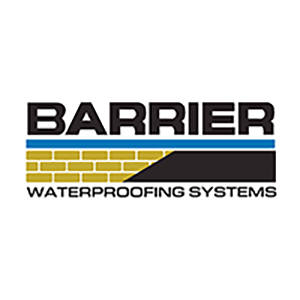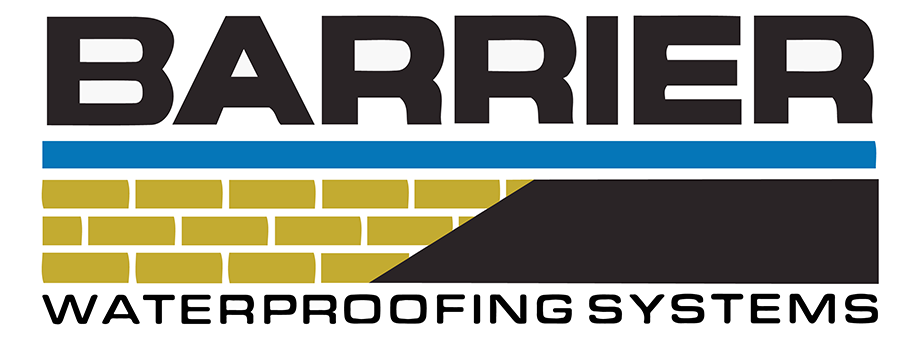It is easy for any homeowner to draw the conclusion that, with how strong and resilient concrete can be, that concrete is nearly impervious to breaking down. This is not the case for one of the most common and foundational building materials used in structures of all kinds across the country.
In this article, we will explain the dangers of block rot as well as the conditions that typically cause it and how it can cause damage or worse for the overall structure of your home if left untreated. You will be able to go about identifying block rot with much more success and can help take the right steps to make sure your home is protected from this unfortunate foundation ailment.
First, the following list outlines the most common reasons your blocks may begin to fail and degrade:
Pressure From Surrounding Saturated Soil
If you want to prevent concrete rot, make sure that you have non-frost-susceptible soil used for the backfill of your foundation and your drain. This will prevent water from penetrating your foundation walls and causing lateral thrust on the foundation blocks. It is also wise to invest in proper insulation for your foundation. These things can save you from a lot of future trouble, especially when it comes to repairing and maintaining your foundation.
Hydrostatic pressure is one of the leading causes of concrete rot in basements. This force increases as water travels deeper into the earth. The pressure is especially large when water is coming from above, such as from heavy rain or snow. In addition, standing water formations and high water tables can increase hydrostatic pressure. It’s important to be aware of these factors, especially if you live near bodies of water.
Pressure From Frost Conditions
When you live in a climate that experiences mild winters, you may not notice the problem right away, but pressure from frost can cause foundation blocks to degrade. This is particularly true when the ground is frozen, which reduces the percolation of water. In addition, cold winters can result in a rapid drop in temperature that can push water against the foundation walls. Fortunately, you can prevent these problems by investing in foundation drains and insulation.
Concrete foundation blocks are susceptible to frost heaving, a problem that occurs when the ground freezes. This type of ground movement can damage structures built with brick foundation blocks, for example.
Pressure From The Weight of Vehicles
The foundation block of a house can be degraded by pressure from the weight of nearby vehicles. This pressure leads to cracking in the wall of the house or even through the concrete blocks. This degraded wall is called bulging. This problem can be caused by frost, water, and the weight of nearby vehicles. It can also be caused by differential settlement in the footing.
Differential Settlement In The Footing
Differential settlement in the footing can occur due to several factors. Some types of soil are more susceptible to settlement, such as clay. In those instances, a trench footing is a viable alternative. In other situations, outcropped bedrock may make a trench footing impossible. Regardless, differential settlement can result in uneven settlement and weakening of the foundation, leading to blocking rot.
Cracks in foundation walls and swollen lintels are common symptoms of differential settlement. It’s essential to identify the problem early so that it can be remedied. Luckily, addressing this problem early can be relatively inexpensive and simple. The most important step is to determine the exact cause of the problem. Often, differential settlement is caused by professional errors during the construction of a foundation. If you notice signs of differential settlement, you should contact a structural engineer. They can assess the damage and explain how to repair it.
Process of Pyrite Oxidation
When you notice your foundation block degrading, it may be due to pyrite oxidation. This occurs when pyrite undergoes oxidation and releases bicarbonate ions (HCO-3), carbon dioxide (CO2), calcium (Ca2+), and sulfate ions (SO2-4). The presence of pyrite in your foundation block may be a sign of a more serious underlying problem.
In England, the phenomenon was first identified in 1990. The problem is associated with limestone aggregates. The limestone and clay aggregates contain pyrite, a naturally occurring substance that is susceptible to oxidation. The pyrite reacts with oxygen to form sulfuric acid. When exposed to oxygen, pyrite releases sulfuric acid, which reacts with the calcite and portlandite in the limestone.
Some Solutions You Can Implement
Insulation
The installation of insulation in a concrete block foundation is an effective way to save energy and protect your walls. During cold winters, insulation limits the amount of heat that can escape through the walls. This prevents the ground from freezing and pushing against the foundation walls. It is important to choose the right type of insulation for your home based on the age, moisture levels of the blocks, and the temperature of the region.
Many energy gurus recommend that you put insulation along the walls of your foundation. Another method involves installing rigid foam insulation on the outside of the foundation. This way, the material is out of sight, but will keep the basement dry.
You can also add insulation to the joist bays – the area between your floor joists and the banding joists. In the past, paper-faced fiberglass insulation was often used in this space. However, this type of insulation allowed water vapor to enter and condense against the banding joists, causing rot and mold.
Professional Concrete Block Repair Services
When the concrete in your foundation is deteriorating, there are various repair options. When choosing professional foundation repair services to help restore the integrity of your home, you will want to choose a local contractor with a good reputation. Our team here at BARRIER Waterproofing Systems will utilize only the best standards along with decades of experience to do the job right.
First, an evaluation of your property will reveal the causes of the problem as well as enough information to help decide the best route to take for the best solution for your home. Whether block replacement, core-filling, or other measures are to be taken, our team will do the work to determine a recommended solution and then consult with you about the work you would like to be done on your home.
For more information about how we can solve your block rot problems, give us a call at (615) 257-1060 | (931) 536-1168 and inquire about your free evaluation today!

